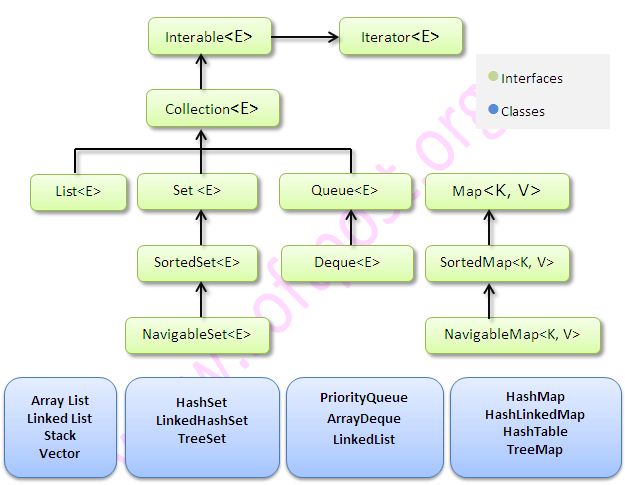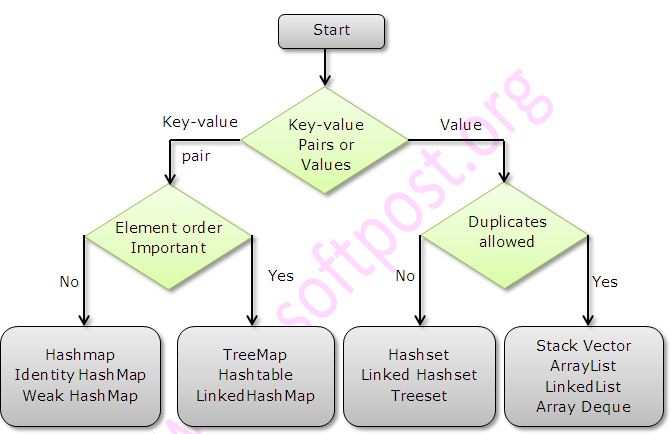Java Tutorial
IntroductionEnvironment SetupIDEBuild ManagementLanguage SpecificationBasic ProgramVariablesData TypesPackagesModifiersConditionalsLoopsObject OrientedClassesSuperInterfacesEnumStatic importInheritanceAbstractionEncapsulationPolymorphismBoxing & UnboxingConversion Formatting numbers Arrays Command line arguments in java Variable Number of arguments in Java Exception handling in Java String handling in Java StringBuffer and StringBuilder in Java Mathematical Operations in Java Date and Time in Java Regular expressions in Java Input output programming in Java File Handling Nested Classes Collections Generics Serialization Socket programming Multi-Threading Annotations Lambda Expressions Reflections in Java Singleton class in Java Runtime Class in JavaHow to load resource in JavaHow to load properties file in JavaAdvanced
Log4j – Logging framework in JavaInterview Questions in JavaCollections is nothing but the group of Objects. In Java, collection framework is made up of below classes and interfaces. Important interfaces in Collection framework are given below. Below image helps us to understand which collection class should be used and when.
Below image helps us to understand which collection class should be used and when. Here is an example ArrayList.
Here is an example ArrayList.
- List – stores all types of values
- Set – stores only unique values
- Queue – stores values in Queue data structure
- Map – Stores key-value pairs
- ArrayList, LinkedList, Vector, Stack
- HashSet, TreeSet, LinkedHashSet
- PriorityQueue, ArrayDeque
- HashMap, TreeMap, LinkedHashMap, HashTable, SortedMap
- Collections – provides some static methods (algorithms) to work with any collection type
- Iterable – This interface is used for iterating through elements in the collection object
 Below image helps us to understand which collection class should be used and when.
Below image helps us to understand which collection class should be used and when. Here is an example ArrayList.
Here is an example ArrayList.
package corejava;
import java.util.ArrayList;
import java.util.Collections;
import java.util.Iterator;
import java.util.List;
/**
* Created by Sagar on 10-04-2016.
*/
public class collections {
public static void main(String [] args){
List<String> myList = new ArrayList<String>();
myList.add("Brisbane");
myList.add("Paris");
myList.add("chicago");
myList.add("London");
Collections.sort(myList);
//Iterating using new for loop
for (String x : myList){
System.out.println(x);
}
myList.remove("Paris");
System.out.println("*********After removing Paris*********");
//Iterating using Itr class
Iterator<String> iter = myList.iterator();
while (iter.hasNext()) {
String str = iter.next();
System.out.println(str);
}
System.out.println("List size is -> " + myList.size());
System.out.println("List contains London? -> " + myList.contains("London"));
//Iterating using Lambda expressions in Java 8
myList.forEach( value -> System.out.println(value));
}
}
Brisbane
London
Paris
chicago
*********After removing Paris*********
Brisbane
London
chicago
List size is -> 3
List contains London? -> true
Brisbane
London
chicago
Process finished with exit code 0
Web development and Automation testing
solutions delivered!!